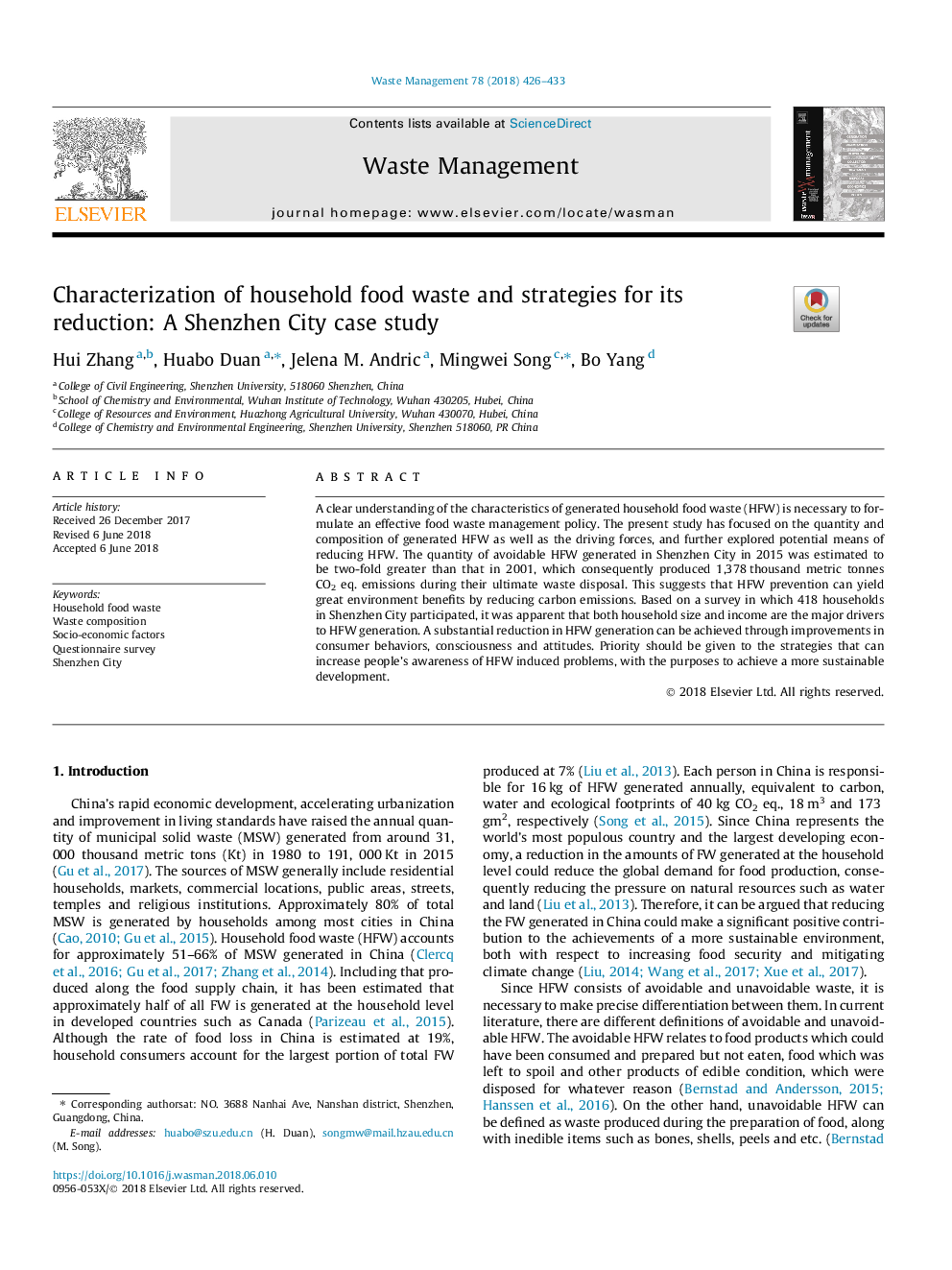| Article ID | Journal | Published Year | Pages | File Type |
|---|---|---|---|---|
| 8869356 | Waste Management | 2018 | 8 Pages |
Abstract
A clear understanding of the characteristics of generated household food waste (HFW) is necessary to formulate an effective food waste management policy. The present study has focused on the quantity and composition of generated HFW as well as the driving forces, and further explored potential means of reducing HFW. The quantity of avoidable HFW generated in Shenzhen City in 2015 was estimated to be two-fold greater than that in 2001, which consequently produced 1,378â¯thousand metric tonnes CO2 eq. emissions during their ultimate waste disposal. This suggests that HFW prevention can yield great environment benefits by reducing carbon emissions. Based on a survey in which 418 households in Shenzhen City participated, it was apparent that both household size and income are the major drivers to HFW generation. A substantial reduction in HFW generation can be achieved through improvements in consumer behaviors, consciousness and attitudes. Priority should be given to the strategies that can increase people's awareness of HFW induced problems, with the purposes to achieve a more sustainable development.
Keywords
Related Topics
Physical Sciences and Engineering
Earth and Planetary Sciences
Geotechnical Engineering and Engineering Geology
Authors
Hui Zhang, Huabo Duan, Jelena M. Andric, Mingwei Song, Bo Yang,
